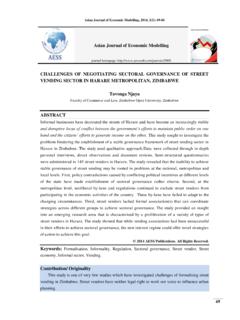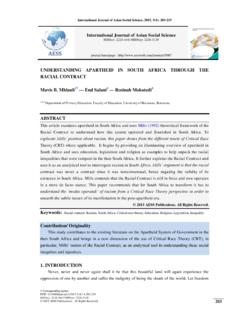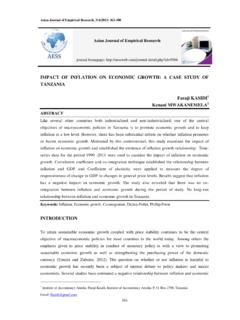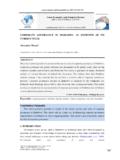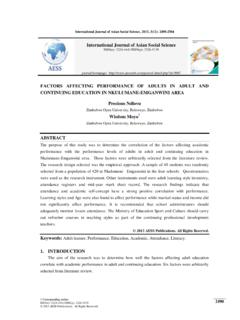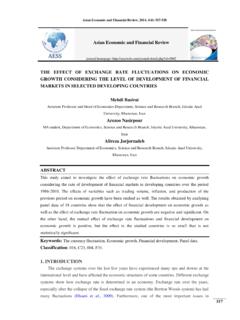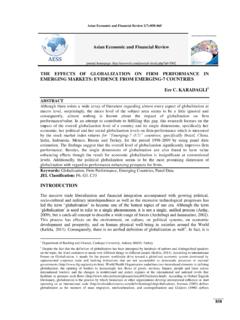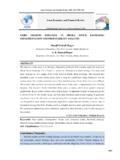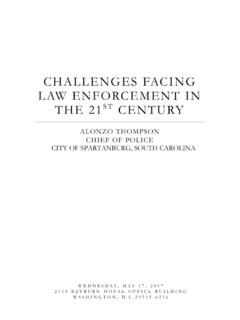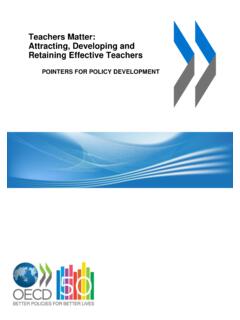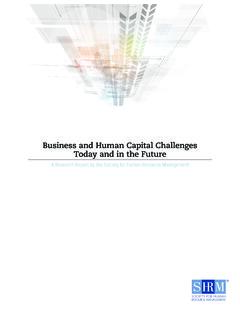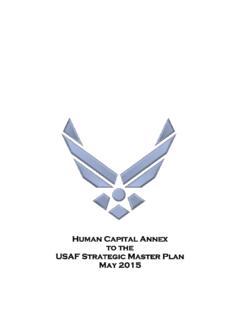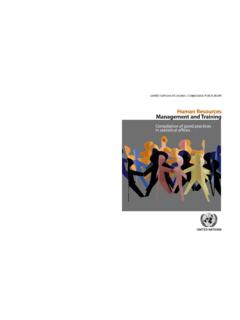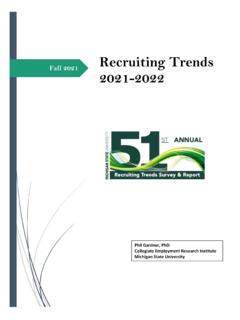Transcription of TALENT MANAGEMENT AS A SOURCE OF COMPETITIVE …
1 2015 Asian Economic and Social Society. All rights reserved ISSN (P): 2309-8295, ISSN (E): 2225-4226 Volume 5, Issue 9, 2015, pp. 208-214 208 TALENT MANAGEMENT AS A SOURCE OF COMPETITIVE ADVANTAGE Faria Rabbi SEGI University Malaysia, Malaysia Nouman Ahad, Tahira Kousar and Tanzila Ali GC. University Faisalabad, Sahiwal Campus, Pakistan Article History: Received: 30 July 2015 Revised received: 2 September 2015 Accepted: 28 September 2015 Online available: 25 October 2015 Keywords: TALENT MANAGEMENT , COMPETITIVE advantage, knowledge MANAGEMENT Abstract In this dynamic and COMPETITIVE business era organizations are facing challenges in TALENT MANAGEMENT .
2 TALENT MANAGEMENT of talented worker is becoming of great importance for the organizations which are working on global level. The demand for key position talented employees is high because those are the persons who will steer the organization and will be responsible to take the organization towards the peak of success, this is the reason organizations are in a state of fight for the best people. The major goal of every organizational strategy is to enhance the effectiveness and efficiency of the operation which could lead the organization to success.
3 TALENT MANAGEMENT is essential when the organizations will like to build winning teams which will be formed by talented personnel. 1. INTRODUCTION1 TALENT MANAGEMENT is the pool of activities which are concerning to attracting, selecting, developing and retaining the best employees in the strategic roles (Scullion & Collings, 2011). They further point out that TALENT MANAGEMENT recognizes people who excel at particular activities and performance upon whom support is offered to enable them to 'push the envelope' while capturing and sharing what they do differently so as colleagues can emulate them (Scullion & Collings, 2011).
4 Organization should have ability and capacity to recognize the people and the capability that may create value and deliver the COMPETITIVE advantage for the organization; in addition TALENT MANAGEMENT also aims at developing and deploying the right people at the right job on the right time and providing them the right environment to show off their abilities in a best possible way for the organizations (Uren & Jackson, 2012). TALENT MANAGEMENT has become a challenge to all the organizations in a global context irrespective of the country (Gardner, 2002). Furthermore the anxiety for the scarcity of the TALENT is a universal issue.
5 All organizations around the globe are competing for the same TALENT . Global integration trend show the standardization in TALENT recruitment, MANAGEMENT and development to make sure their COMPETITIVE advantage in the market. Therefore, organizations are adopting best global and local Corresponding author's Name: Faria Rabbi Email address: Journal of Asian Business Strategy DOI: Journal of Asian Business Strategy, 5(9)2015: 208-214 209 TALENT MANAGEMENT practices (Stahl et al., 2007). There are several benefits of TALENT MANAGEMENT such as employee engagement, retention of employee, increased productivity, culture of excellence and much more (Ballesteros & Inmaculada, 2010).
6 Organization success with the help of TALENT MANAGEMENT is anchored in three factors; these factors are development and reward plan, creation of set of career paths for the talented employee, which will help in ensuring the high quality work in the organization which will ultimately result in superior performance (Ballesteros & Inmaculada, 2010). In this dynamic and COMPETITIVE business era organizations are facing challenges in TALENT MANAGEMENT (Schuler et al., 2011). TALENT MANAGEMENT of talented worker is becoming of great importance for the organizations which are working on global level.
7 The demand for key position talented employees is high because those are the persons who will steer the organization and will be responsible to take the organization towards the peak of success, this is the reason organizations are in a state of fight for the best people. Theory of firm based on TALENT MANAGEMENT hypothesize that the TALENT is the only resource of firms which may provide basis for sustainable COMPETITIVE advantage, therefore, the organizations should focus on TALENT and the capabilities derived from TALENT . The role of firms is neither the creation of TALENT nor the acquisition of TALENT rather; the firm is considered a as TALENT integration institute, as the TALENT resides in the head of individuals and firms only integrates and provides system and structural arrangements for coordination and co-operation between the talented workers.
8 Literature on TALENT MANAGEMENT advocates that organization image and performance can be enhanced, if the capabilities of individuals are utilized accurately and successfully. In knowledge economy, the main issue is to find attract, develop and retain the talented people, so organizations are putting their focus on gaining and maintaining the competent people with them. Theories of TALENT MANAGEMENT A number of theories and frame work are developed concerning to the conversion of TALENT into better performance. A firm s distinctive competence is based on the specialized resources, assets, the distinctive competency of the firm is linked to the resources, assets and skills possessed by the members of the organization and the optimum utilization of these resources help the organization to build COMPETITIVE advantage.
9 Two basic theories are emerged firm the theory of firm: resource based theory and TALENT based theory. TALENT based theory states that the TALENT is the only resource which may help in gaining and maintain the COMPETITIVE advantage, and, therefore organizations must put a focus on attracting and maintaining the talented work force. The role of firms is neither the creation of TALENT nor the acquisition of TALENT rather; the firm is considered a as TALENT integration institute, as the TALENT resides in the head of individuals and firms only integrates and provides system and structural arrangements for coordination and co-operation between the talented workers.
10 Literature on the COMPETITIVE advantage has taken a shift and it has acknowledged that the internal resources have a crucial role to play in the performance of the organization (Wright et al., 2009). The resource based view of the firm gives importance to building unique, hard to imitate and valuable resources as well as a dynamic way to integrate those resources to get a success for the organization. According to resource based view COMPETITIVE advantage is dependent on the valuable, rare and hard to copy resources that reside in the organization and human resources one of those scarce resources.
